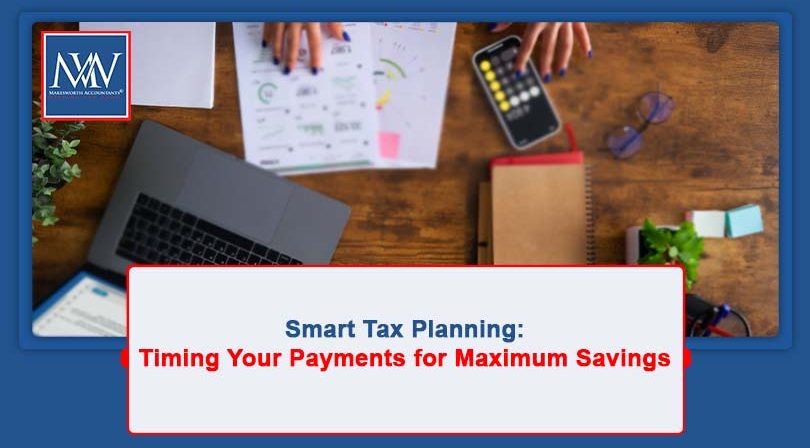
Smart Tax Planning: Timing Your Payments for Maximum Savings
Understanding the Cash Basis for Tax Planning
For unincorporated businesses, starting from 6 April 2024, the cash basis becomes the default method for preparing accounts. Unlike the accruals basis, which matches income and expenses to the relevant accounting period, the cash basis recognizes income only when received and expenses only when paid. This creates strategic tax planning opportunities, particularly around the tax year-end.
1. Delaying Invoicing to Reduce Tax Liability
If income is expected to be taxed at a higher rate in 2024/25 than in 2025/26, delaying invoicing could be beneficial. By ensuring that payment is received in a lower-tax year, you could potentially reduce your tax bill.
Example: A sole trader, currently a higher-rate taxpayer (40%) in 2024/25, anticipates being a basic-rate taxpayer (20%) in 2025/26. If they complete a job worth £5,000 in March 2025 but delay invoicing until April 2025, the income falls into the 2025/26 tax year and is taxed at 20% instead of 40%—cutting the tax bill significantly. Additionally, this defers the tax payment by a year, with tax for 2024/25 due by 31 January 2026 and for 2025/26 by 31 January 2027.
2. Invoicing Early to Optimize Tax Bands
Conversely, if the taxpayer is currently a basic-rate taxpayer (20%) in 2024/25 but expects to move into a higher tax bracket in 2025/26, invoicing earlier can be beneficial. Similarly, if their allowance for 2024/25 remains unused, shifting income into this period maximizes tax efficiency.
3. Advancing Expenditure to Lower Taxable Profits
Taxable profits can be reduced not only by adjusting income timing but also by increasing expenses. Under the cash basis, bringing forward planned expenditures into the current tax year helps lower taxable profits and, in turn, the tax bill.
Example: A sole trader plans to purchase a van worth £15,000. If they buy the van before 5 April 2025, the cost will be deducted from 2024/25 taxable profits, reducing the tax bill for that year. However, if the purchase is delayed until after 5 April 2025, the tax benefit is postponed until 2025/26.
4. Delaying Expenditure for Future Tax Relief
If a taxpayer anticipates moving into a higher tax bracket in 2025/26 or have not fully used their allowance for 2024/25, delaying planned expenditure to the following tax year might be advantageous. This ensures that tax relief is obtained at the highest possible rate.
Final Thoughts
By strategically timing income and expenses, unincorporated businesses can take advantage of tax planning opportunities and optimize their financial position. Whether advancing or delaying transactions, careful consideration of tax brackets and allowances can lead to significant savings.
Partner Note: ITTOIA 2005, Pt. 2
For more information, Book a Free Consultation
Need Accountancy Support?
For information on bespoke training, or if you have any other questions for Makesworth Accountant, please fill in your details below
















 151
151